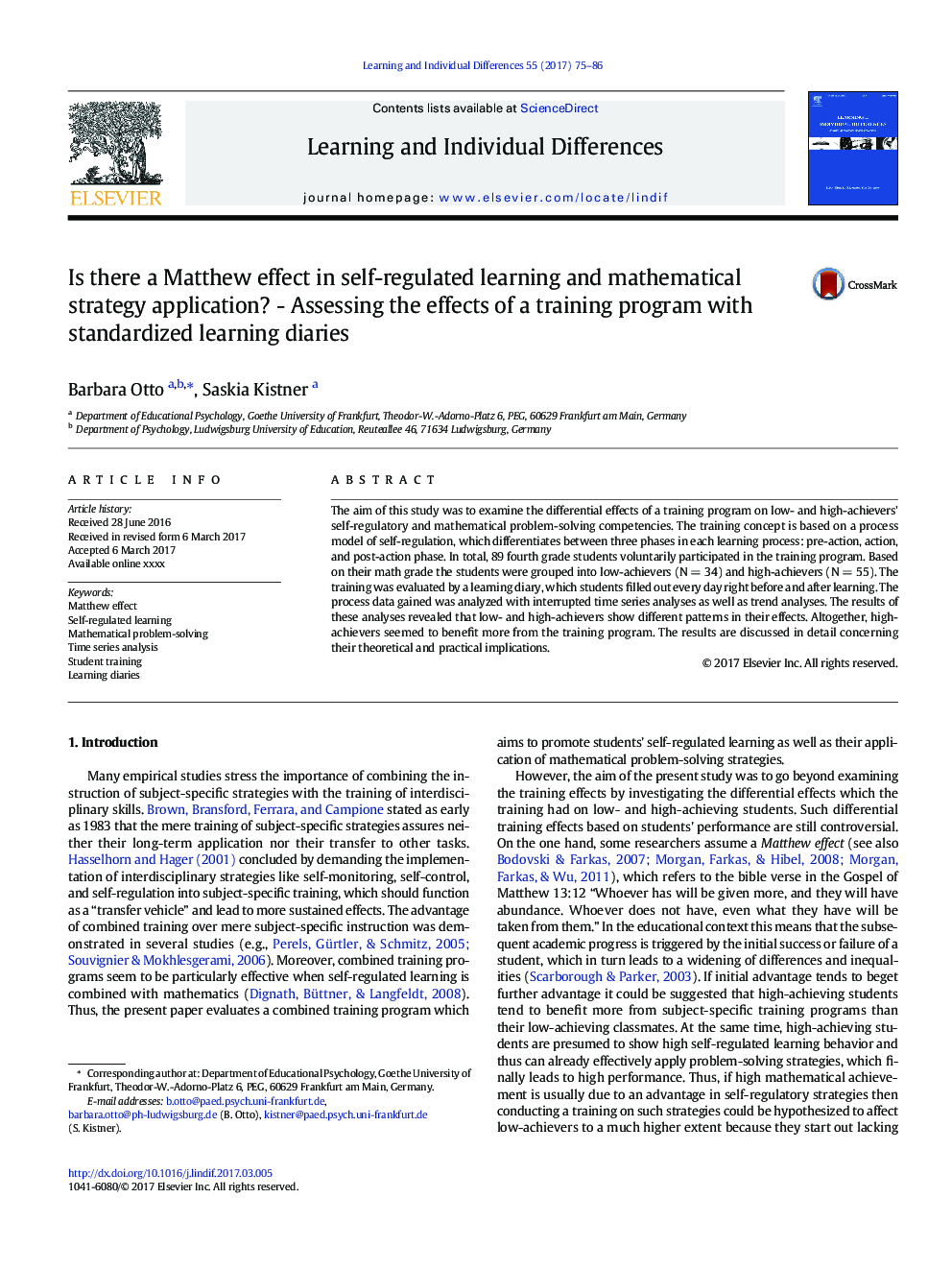| Article ID | Journal | Published Year | Pages | File Type |
|---|---|---|---|---|
| 4939980 | Learning and Individual Differences | 2017 | 12 Pages |
Abstract
The aim of this study was to examine the differential effects of a training program on low- and high-achievers' self-regulatory and mathematical problem-solving competencies. The training concept is based on a process model of self-regulation, which differentiates between three phases in each learning process: pre-action, action, and post-action phase. In total, 89 fourth grade students voluntarily participated in the training program. Based on their math grade the students were grouped into low-achievers (NÂ =Â 34) and high-achievers (NÂ =Â 55). The training was evaluated by a learning diary, which students filled out every day right before and after learning. The process data gained was analyzed with interrupted time series analyses as well as trend analyses. The results of these analyses revealed that low- and high-achievers show different patterns in their effects. Altogether, high-achievers seemed to benefit more from the training program. The results are discussed in detail concerning their theoretical and practical implications.
Related Topics
Social Sciences and Humanities
Psychology
Developmental and Educational Psychology
Authors
Barbara Otto, Saskia Kistner,
